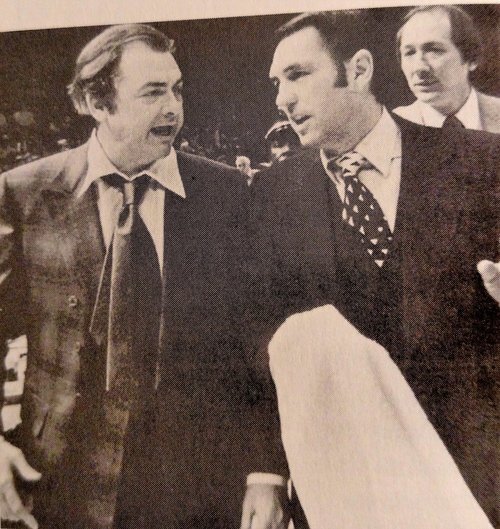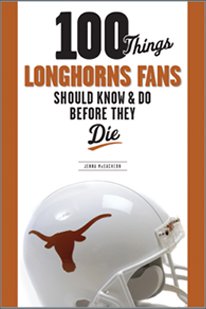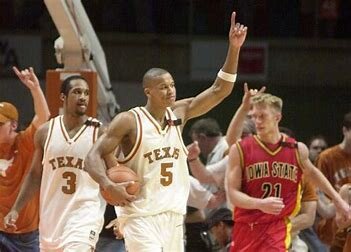Abe Lemons vs DKR
Abe Lemons and Darrell Royal Comparisons
Abe Lemons’s legal name is A E Lemons (no periods after A or E). When he joined the armed service, the recruiter told him he needed a name, not initials, so. A E Lemmons put a B between his initials, and he became Abe. He regrets not using a C, so he could have been an ACE.
Coach Royal and Coach Lemons first met in 1941 at Southwestern State Teachers College. After this chance meeting, they continued to meet at coaches’ meetings and Oklahoma sporting events for years. By the time DKR hired Lemons in 1976, their childhood and career paths were mirror images of each other.
-
Abe’s home in Walters, Ok. and Darrell’s home in Hollis are less than 100 miles apart ;
-
DKR and Abe are the 7th child in their family;
-
Abe had four older brothers, and Darrell had three older brothers, which explains the competitive nature of each
-
The parents of both coaches lived in Texas but moved to Oklahoma
-
Both worked at odd jobs as kids
-
Both became top college athletes
-
Both married their childhood sweetheart
-
Each became a top-level coach in their respective sport
-
Each is famous for one-liners, but Robert Heard, the author of “You scored one more point than a dead man,” said Abe Lemons’s one-liners were sardonic while Darrell’s one-liners were pithier with more snap. “
Each spent years trying to expose teams in breach of NCAA recruiting rules.
-
Royal and Lemons hated cheaters.
-
Abe reported OU for violations and was shocked when fans and newspapers were upset that he reported OU. Abe said one coach accused another coach of cheating, and “everyone wants to know who the dirty rat was the turned him in.” Abe says, “You can’t legislate integrity. When the rules are bent or broken, there’s a tendency for coaches to wink at each other. The whole thing has gotten out of hand. There’s no way for the NCAA to enforce the rules except to start giving lie detector tests.”
-
Royal says, “You can’t win against cheaters,” so Royal supported the use of a lie detector test. DKR asked the members of the OU staff in the mid-70s to take a lie detector test to prove they were compliant with NCAA recruiting rules. OU said they would, then refused to take the lie detector test, and then said they took the lie detector test and passed. Royal was instrumental in getting the SWC to approve the use of a lie detector test for verification of rule compliance. Unfortunately, OU was in the Big 8, and SWC rules did not apply. Spy Gate, cheating, pandering to recruits, articles that suggested he was a racist, and his first non-winning season all sapped Royal of his passion for the game. Coach Royal conceded that winning did not excite him anymore, and he found it difficult to recover mentally from losses. He also said, “Climbing is a thrill. Maintaining is a Bitch.”
Of the factors mentioned above the evolution of recruiting disgusted him the most. Royal said, it was not right to court athletes for the privilege of giving them a college education to play football. He said, “it’s all backwards, the kids should be coming to us, not us going to them.”
Abe Lemons agreed with Royal. Lemons said “the players outha to be flying the coaches in for visits instead of vice versa. They (recruits) are the ones who stand to benefit. ….. The school will help the kid for more than the kid will help the school.”
Royal says, “The parents and recruits who initially were looking forward to the courting of their sons by the major collegiate football powers goes from welcoming coaches with open harms to closing doors on them.” He also said “we know we abuse the prospect and the family during recruiting, but it’s a two-way street. The families and the prospects abuse us.””
-
Abe Lemons and DKR’s success creates a monster. Abe Lemons says, “You build a monster, and the monster eats you.” Abe and DKR lived this quote during the last years of their head coaching careers.
Both were accused of racial prejudice.
In 1968, six black players at Oklahoma City University presented Coach Lemons with 14 grievances of prejudice. It was the biggest storm of his coaching career. He tells the athletes, “You can do one of two things: get me fired or (you can) transfer.” Abe said these athletes were “hiding in a group.” After Lemons suspended them for breaking team rules, the OCU administration got involved, and Abe Lemons threatened to quit. After much discussion, the OCU administration, Abe Lemons, and the players created a plan that reinstated the black players. 5 of the six players said they regretted the whole incident. The black players dropped the “group” grievance, and Abe’s Lemons managed to coach the remainder of his basketball career without being stereotyped as racist.
-
Coach Royal was not so lucky. In 1972, Robert Heard co-authored a 5-part AP series on recruiting blacks. Even though in 1972, there were 7 African American players on Coach Royal’s team, Texas was not able to recruit one black player that year. Robert Heard says, “Royal had tried to recruit blacks, but the “image” (of being a racist school) fed upon itself and reinforced the difficulty” of recruiting African American athletes. It did not help to recruit that an AP article quoted 6 Longhorn players as saying they felt there was some racism among the Coaches. Julius Whittier (1 of the 6) was my roommate in 1970. In Jimmy Banks’s book The Darrell Royal Story, pages 156-159, the author tells a story about an interview written by AP that quotes Julius as saying some unflattering things about UT. After reading the article, Julius visited Coach Royal and said, “The interview was a “pressure cooker” and “I (Julius) was really trying to help (UT) but was clumsy.” Royal responded, “If you were trying to help, you really were clumsy.” Eventually, the matter was dropped, and Julius continued to remain in the starting lineup. However, Unlike Lemmons, Royal never fully recovered from the undeserved moniker as a racist.
When the coach wants a player to quit
Coach Lemons sometimes had tart comments for his players at practice, and a sports personality asked him if that was the right thing to do. Abe says, “If a player quit because of his comments, instead of getting mad and trying harder, the player would probably quit in the 4th quarter when the going got tough”.
In the book Runnin’ with the Big Dogs, the author Mike Shropshire quotes Darrell Royal saying, “A boy shows how much he wants to play ……in two-a-days when it is hot and tough”. ” I don’t count on the boy who waits until October when it is cool and fun.” That player may be ” better than three guys in front of him, but I know those three won’t change their minds in the fourth quarter.”





